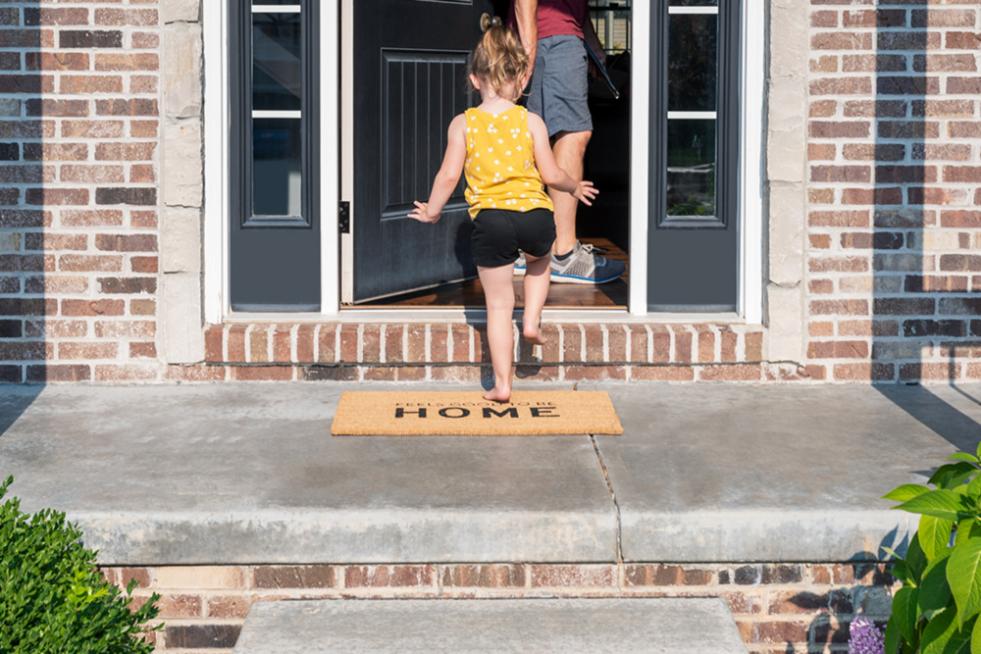What Are the Risks of a First-Time Homebuyer Mortgage?
Buying a home is a major financial decision, and it's important to be aware of the risks involved, especially if you're a first-time homebuyer. This article will inform you about the common risks associated with first-time homebuyer mortgages and provide tips for minimizing these risks.

Types Of First-Time Homebuyer Mortgages
There are several types of first-time homebuyer mortgages available, each with its own advantages and disadvantages. The most common types include:
- Conventional loans: These loans are not backed by the government and typically require a down payment of at least 5%. Conventional loans typically have lower interest rates than government-insured loans.
- Government-insured loans (FHA, VA, USDA): These loans are backed by the government and typically require a smaller down payment than conventional loans. Government-insured loans may also have lower interest rates than conventional loans, but they may also have higher fees.
- Subprime loans: These loans are designed for borrowers with poor credit scores or high debt-to-income ratios. Subprime loans typically have higher interest rates and fees than other types of loans.
Common Risks Associated With First-Time Homebuyer Mortgages
There are a number of risks associated with first-time homebuyer mortgages, including:
- High-interest rates: First-time homebuyers often have higher interest rates than borrowers with good credit scores and low debt-to-income ratios. This can make it more expensive to buy a home and can lead to higher monthly mortgage payments.
- PMI (private mortgage insurance): If you make a down payment of less than 20%, you will likely be required to pay PMI. PMI is an insurance policy that protects the lender in case you default on your mortgage. PMI can add hundreds of dollars to your monthly mortgage payments.
- Closing costs: Closing costs are the fees that you pay when you buy a home. These costs can include things like loan origination fees, appraisal fees, and title insurance. Closing costs can add thousands of dollars to the cost of buying a home.
- Down payment requirements: The down payment is the amount of money that you pay upfront when you buy a home. The down payment is typically a percentage of the purchase price. The larger your down payment, the smaller your mortgage will be. However, saving for a down payment can be difficult, especially for first-time homebuyers.
- Qualifying for a mortgage: Getting approved for a mortgage can be difficult, especially for first-time homebuyers. Lenders will consider your credit score, debt-to-income ratio, and employment history when making a decision. If you have a low credit score, a high debt-to-income ratio, or a short employment history, you may have difficulty getting approved for a mortgage.
Additional Risks For First-Time Homebuyers
In addition to the risks listed above, first-time homebuyers may also face the following risks:
- Lack of experience: First-time homebuyers may not be familiar with the homebuying process. This can lead to mistakes that can cost you money.
- Overestimating affordability: First-time homebuyers may overestimate how much they can afford to spend on a home. This can lead to financial problems down the road.
- Not understanding the terms of the mortgage: First-time homebuyers may not understand the terms of their mortgage. This can lead to problems if you default on your mortgage.
- Buying a home that needs repairs: First-time homebuyers may buy a home that needs repairs. This can be a costly mistake.
- Not budgeting for maintenance and repairs: First-time homebuyers may not budget for maintenance and repairs. This can lead to financial problems down the road.
Tips For Minimizing Risks

There are a number of things that you can do to minimize the risks associated with first-time homebuyer mortgages, including:
- Shop around for the best mortgage rates: Don't just accept the first mortgage rate that you're offered. Shop around and compare rates from multiple lenders. You may be able to save thousands of dollars over the life of your loan by getting a lower interest rate.
- Get pre-approved for a mortgage: Getting pre-approved for a mortgage can help you determine how much you can afford to spend on a home. It can also make the homebuying process go more smoothly.
- Save for a down payment: The larger your down payment, the smaller your mortgage will be. This can save you money on interest and PMI.
- Improve your credit score: A higher credit score will give you access to lower interest rates and better loan terms.
- Get a home inspection: A home inspection can help you identify any problems with the home before you buy it. This can save you money in the long run.
- Budget for maintenance and repairs: Set aside money each month for maintenance and repairs. This will help you avoid financial problems down the road.
- Consider a shorter loan term: A shorter loan term will mean higher monthly payments, but you'll pay less interest over the life of the loan.
Buying a home is a major financial decision, and it's important to be aware of the risks involved. By understanding the risks and taking steps to minimize them, you can help ensure that your homebuying experience is a positive one.

If you're considering buying a home, it's important to consult with a mortgage lender or financial advisor. They can help you assess your financial situation and determine the best mortgage option for you.
YesNo

Leave a Reply